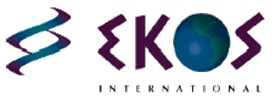By Cynthia Figge
A recent article in the Harvard Business Review by David Lubin and Daniel Esty should bring cheer to anyone who has been concerned about how slowly corporations seem to be adopting sustainability strategies. The article titled “The Sustainability Imperative” argues persuasively that incorporating sustainability practices into corporate behavior is a “mega trend”.
A section titled “Reporting and communication” made me especially happy. The authors say, “Developing metrics that allow companies to measure benefits and understand costs is essential to adapting and refining their strategy, as well as communicating results.” Companies need an external measure of their sustainability progress —and they need benchmarks that compare them to their competitors, so they know how much further they need to go. We have spent two years developing a measurement instrument we call CSRHUB—a tool we hope can provide this type of broad and uniform metric.
The authors go on to point out something I and my partners at EKOS International have seen in many of the companies we have worked with. “When the assessments were based only on publicly available information and a company’s external reporting, we got scores that were almost always lower, and often significantly so, than scores developed in consultation with the company and with full inside information.” In other words, many companies may be doing better on sustainability issues—and on their corporate social responsibility performance in general—than is publicly known.
For example, if you look at the default ratings on the CSRHUB site for Wal-mart and Costco, you will find Wal-mart gets a score of 56 and Costco gets a 48 (on a scale of 0 to 100). As a Costco customer I hope that this difference may be overstated, but it’s difficult to know. Some of the difference our sources perceive between these two companies may be driven by their varying policies of disclosure. One explanation for the rating difference is that it’s the penalty for lack of transparency. Costco is followed by fewer data sources: Only twelve sources report on Costco compared to seventeen for Wal-mart. Wal-mart has expanded its website coverage of CSR, while Costco has only recently published a first report on sustainability.
If you are a subscriber to our system, you can see more of the picture. Subscribers will see that Costco gets a 39 on its corporate transparency and reporting compared to 52 for Wal-mart, and 45 on its environmental policy and reporting compared to 63 for Wal-mart. In contrast, we show closer ratings for a more fundamental element—environmental resource management (Costco gets a 51 rating while Wal-mart gets a 59).
I hope more companies come to understand both points this HBR article makes regarding communication. First, companies need to develop metrics that enable them to track their own progress. Second, companies should contribute to the metric-forming process by revealing their policies and practices. Doing both will strengthen transparency, and give good-performing companies credit where due for the improvements they have made, and hopefully serve as a catalyst to “manage sustainability as a business megatrend”.
